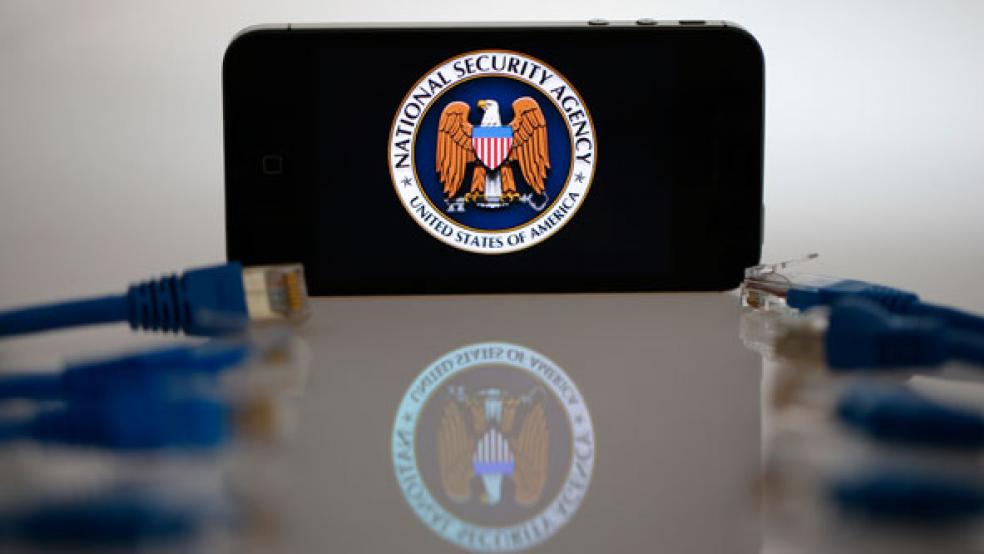President Obama’s plan to limit the scope of NSA surveillance activities has disappointed privacy advocates, who said reforms did not curb spying enough. But former intelligence and officials are now warning that the changes could put American lives at risk.
In a speech on Friday outlining his reforms, Obama called for an end to spying on leaders of friendly countries, requiring a court order to access data from their database of cell phone records, limiting the scope of what NSA can do when it does access the database, and the possible creation of a new body to store that data. The president also said he would ask Congress to appoint a public advocate to the Foreign Intelligence Surveillance Act court.
Related: 3 Reasons Snowden Should Not Be Granted Clemency
Now, 17 former intelligence and national security officials and experts are warning that these changes would put Americans at risk. Among the signatories were former CIA Directors James Woolsey and Michael Hayden, former Homeland Security Advisor to the President Fran Townsend, former National Counterintelligence Executive Michelle Van Cleave and the former chairman of the House Intelligence Committee, Rep. Pete Hoekstra.
“There is no doubt a need to discuss privacy in the era of ‘big data.’ The Snowden leaks, however, should not precipitate a knee-jerk reaction to do something,” the letter read. “They should generate a thoughtful discussion of very difficult issues. This is the opportunity to implement reforms that will strengthen intelligence capabilities, protect American civil liberties, and keep America safe.”
The letter backed the repeated claims of NSA chief Keith B. Alexander, who has continually said that NSA actions stop attacks since the Snowden blowup began last summer. However, because of the clandestine nature of NSA’s activities, he has been unable to prove that claim, allowing critics to charge that he’s using American security as an excuse to continue unwarranted spying.
At a press conference announcing the letter, signatories of the letter backed Alexander, saying that limiting the scope of NSA’s activities in ways recommended by the president would hurt intelligence gathering efforts.
Related: NSA Spying: Europe Is Shocked, Shocked About Spying
“Intelligence is the tip of the spear to keep America safe. We need a robust intelligence community to fight and combat the kind of threat that America faces today,” Hokestra said at the conference at the National Press Club.
“If I were a member of Al-Qaeda, I’d tell you to go out and endorse every one of the Presidential Review Group’s recommendations,” Admiral James Lyons added.
He has a point. In April, 2006, an article in the Washington Post described how terrorists were concerned that their web “chatter” could be vulnerable to government hackers.
Terrorist groups, which for years have used the Internet and its various tools to organize and communicate, are paying more attention to addressing security and privacy concerns similar to those of other web users, counterterrorism experts say.
The Internet has long been a convenient gathering place for radical Islamists advocating violence against Western influences, known as jihadists. Through online chat, e-mail and web postings, communities of people have relied on one another for advice, political debate, even movie reviews and biographical information on suicide bombers and religious leaders.
Recently, postings on jihadist websites have expressed increasing concern about spyware, password protection, and surveillance on chat rooms and instant-messaging systems.
One forum recently posted a guide for Internet safety and anonymity on the Internet, advising readers of ways to circumvent hackers or government officials.
Related: Snowden May Have Stored Doomsday Info Data on the Cloud
Regardless, many in Congress and within the tech community expressed disappointment Friday that Obama did not go far enough.
“The Fourth Amendment requires an individualized warrant based on probable cause before the government can search phone records and e-mails,” Rep. Rand Paul (R-KY) said in response to the speech. “President Obama's announced solution to the NSA spying controversy is the same unconstitutional program with a new configuration.”
“Nothing the president said today will end the unconstitutional invasion of Americans' privacy,” added Michigan Rep. Justin Amash (R-MI). Silicon Valley execs were equally disappointed in the speech.
"The commitments outlined by President Obama represent positive progress on key issues, including transparency from the government and in what companies will be allowed to disclose, extending privacy protections to non-U.S. citizens, and FISA court reform,” a coalition of tech companies including Google, Facebook and Yahoo said in a statement. “Crucial details remain to be addressed on these issues, and additional steps are needed on other important issues, so we’ll continue to work with the administration and Congress to keep the momentum going and advocate for reforms consistent with the principles we outlined in December."
Top Reads from the Fiscal Times:





